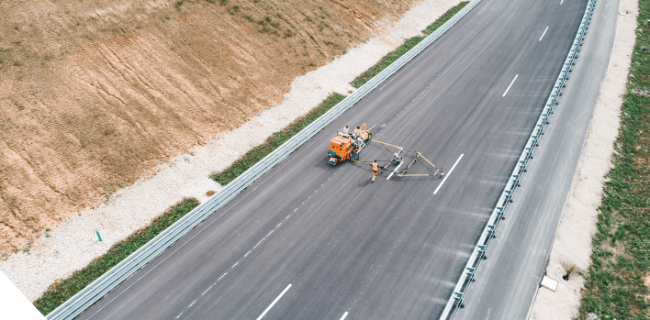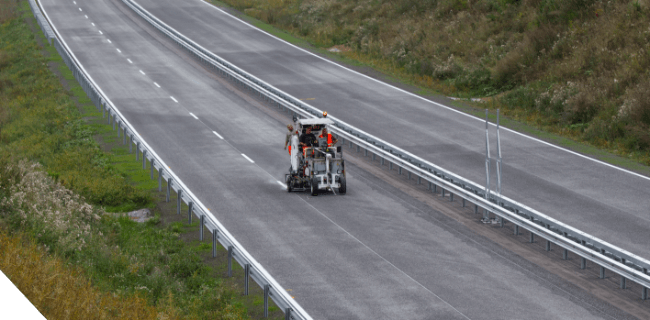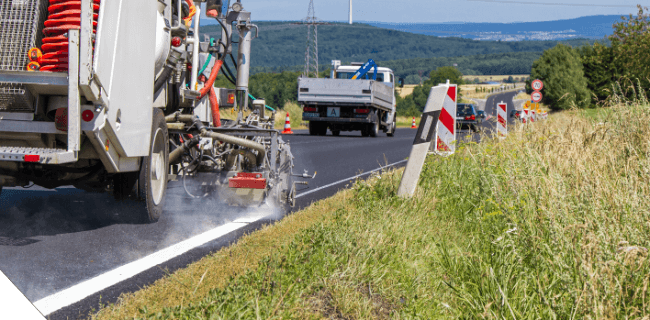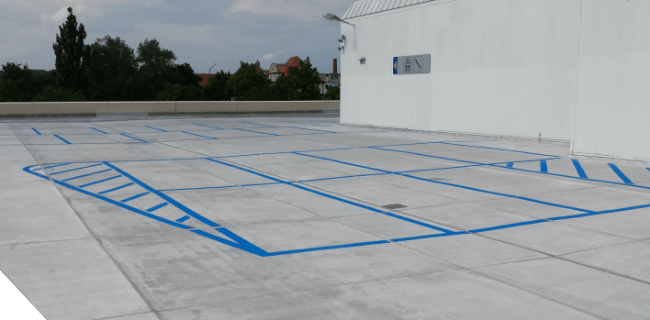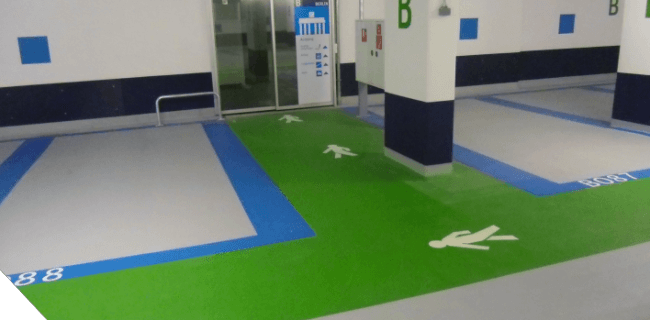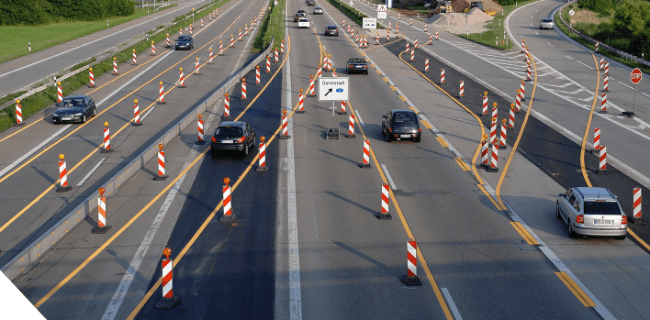Lane Marking
For clear and safe traffic management.
Thanks to our long standing experience and broad portfolio, VSV is your ideal partner for reliable road and traffic marking that is tailored to your specific situation.
Road markings ensure safety and guidance but are also considered to be road signs according to the German road traffic regulations (StVO). They also have to meet numerous different technical requirements for use in road traffic.
These range from durability and wear resistance, visibility during the day, night and in wet conditions through to their grip on the different road surfaces.
Material diversity
Lane and traffic marking for every situation
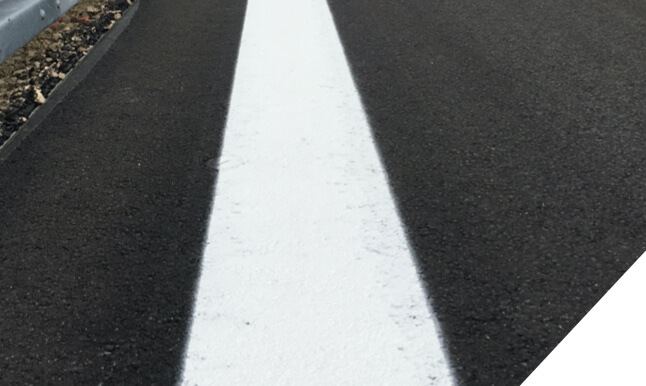
Paint
Water thinnable and high-solid paints
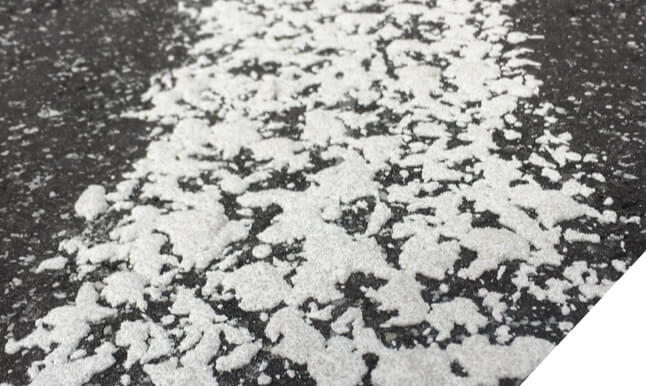
Plastic
Cold spray plastics, hot and cold plastic masses
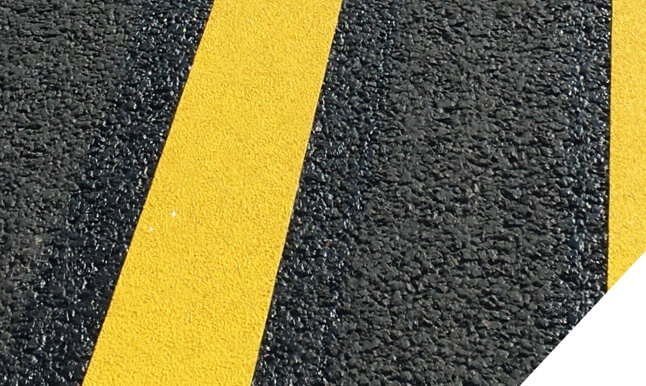
Film
Temporary and long-term film marking
Application processes
Durable. Safe. Flexible.
The ideal marking is always a combination of material and technology. We’ll be happy to advise and work with you to find the best marking solution for your situation quickly and easily.
The broad portfolio at VSV enables us to offer you all standard processes and materials in order to find the most appropriate solution for the local conditions and any requirements according to traffic law.
Safety due to
visibility: Type II markings
Type II markings are much more visible especially in wet conditions because their reflective beads protrude out of the film of water.

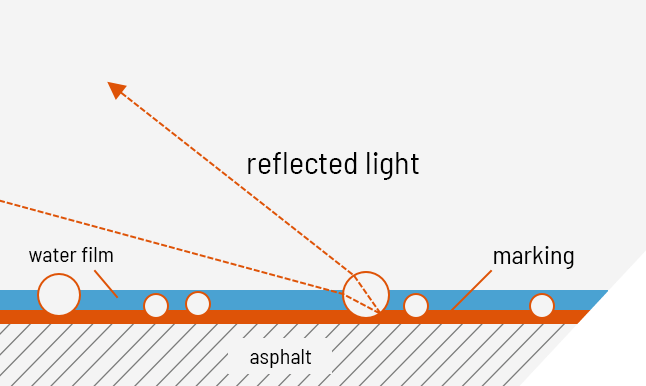
Smooth marking with coarse drop-on materials
Course drop-on materials are spread onto the marking material while it is being applied so that they protrude out of the film of water and make the markings more visible in wet conditions.
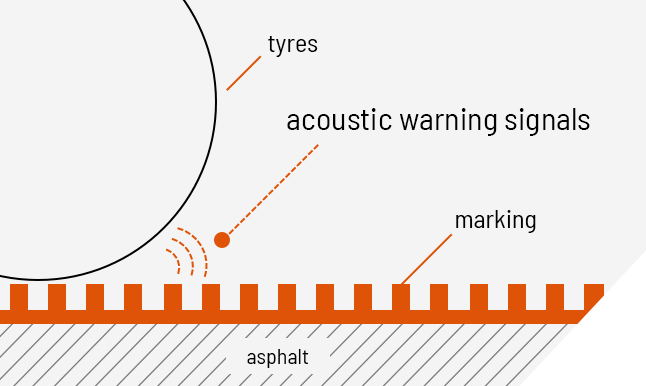
Profiled marking with a haptic and acoustic warning effect
These markings are given a strong profile on the surface in the form of ridges. This provides a haptic and acoustic warning when they are driven over by vehicles. However, the noise can be disturbing to local residents. Another disadvantage is the high level of wear that the markings can experience, e.g. if snow plows are frequently used.
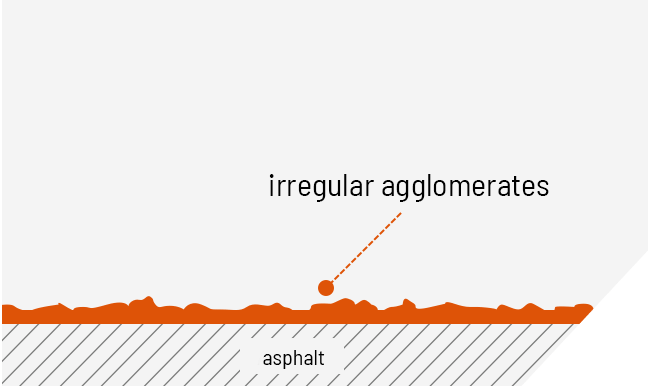
Thick-layer marking with agglomerates
Unevenly sized components result in an uneven surface. The marking material is not applied over the full surface area but is nevertheless perceived as a solid line from a distance. In addition, this type of marking grips to the surface better and is relatively resistant to the frequent use of snow plows.
Film marking
Flexible. Long service lives. Quick to install.
Not only suitable for temporary traffic management, e.g. around construction sites, but also for long-term use under heavy loads.
Film marking is not affected by changing weather conditions during its production and can be applied to almost every road surface using various different technical methods. Film marking is particularly suitable for quick interventions into road traffic because it can be driven on straight away.
Temporary film marking
Emergency measures or construction sites operating at night require, among other things, so-called “yellow marking” to replace the standard white markings for a temporary period of time. It is thus important that these markings are at least as visible as the existing white markings both during the day and at night.
High-quality road markings effectively reduce uncertainty and dangers, especially on narrow sections of the road next to construction sites and in areas where there are no lane markings.

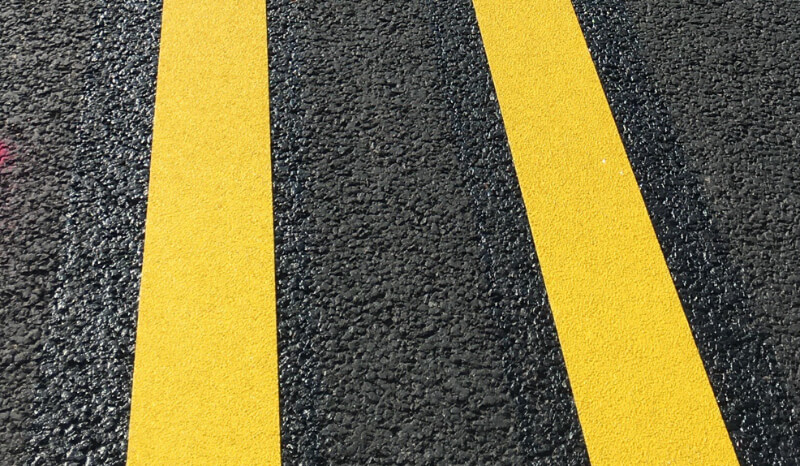
Long-term film marking
Long-term film marking is ideal for long-term construction sites and can be permanently used for traffic management.
Thanks to their high retroreflection values and good grip on the road surface even when in service for longer periods, film marking is an easy solution that can be applied to various different surfaces and roads. It can also be driven on straight away.

